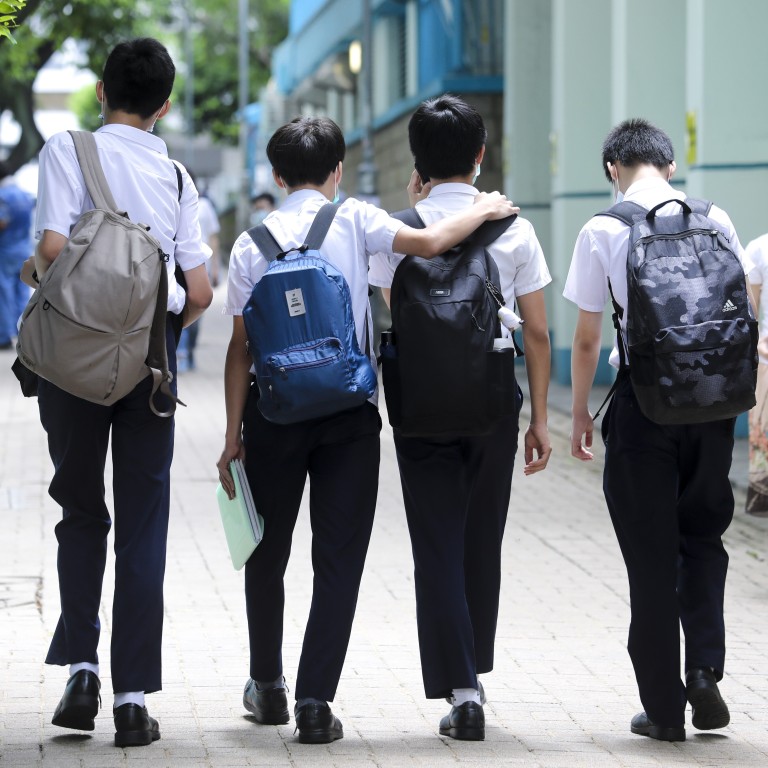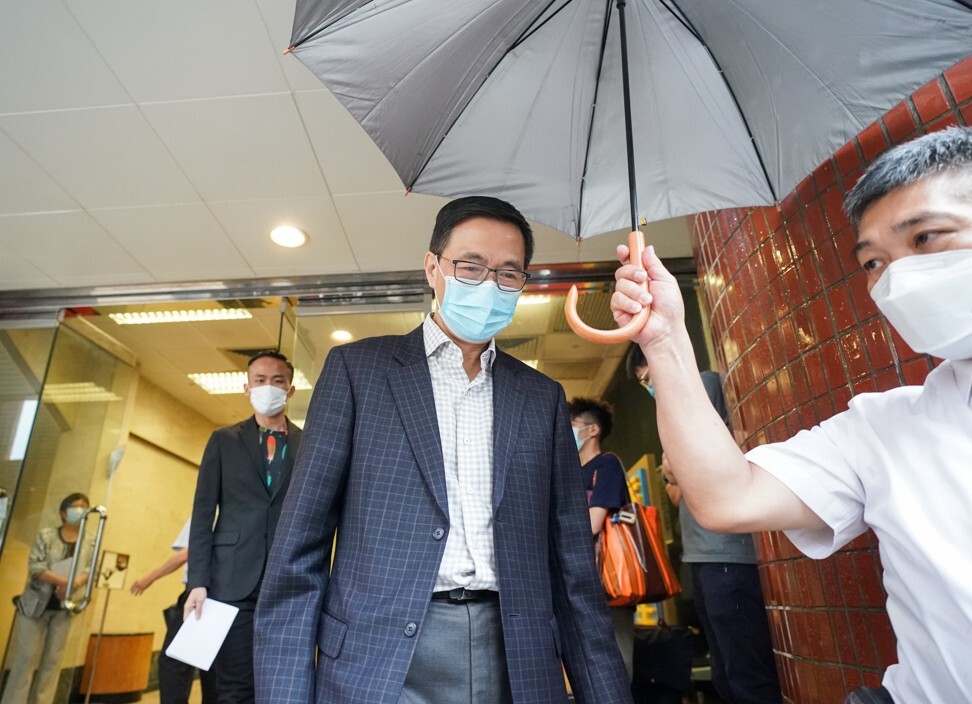
Hong Kong education minister urges pupils, parents, staff to get tested for Covid-19 amid contagion fears for the return to school
- Kevin Yeung pleads with school community to take part in the voluntary, mass screening exercise to build confidence in the resumption of on-site learning
- City pupils will be back on campus later this month, but no date set for when schools will operate full days
His plea on Saturday for the school community to engage in testing came a day after he met lawmakers from the pro-government Democratic Alliance for the Betterment and Progress of Hong Kong, who expressed concern over some principals and staff rejecting the free, voluntary screening programme.
Last week, reports emerged that some principals and teachers preferred to be tested at private clinics due to mistrust of the government.
Hong Kong schools to resume face-to-face classes from September 23
“This is for the interests of society,” Yeung told a radio show, referring to fears the return to physical classes could trigger a rise in cases. “If staff, students, parents join the testing, it would boost confidence for school resumption. But we will not make it compulsory.”

The Education Bureau updated Covid-19 guidelines for schools on Friday but school resumption arrangements for some 27,000 cross-border students – those living in mainland China but educated in Hong Kong – were not mentioned.
Yeung admitted he had no timetable for their return as long as travel restrictions remained in place without quarantine exemptions. He said maximum capacity for point-to-point transport via school buses remained at 2,000 students per day.
Is Hong Kong’s mass Covid-19 testing scheme worth the trouble?
“It would be extremely difficult to transport more than 20,000 students across the border every day. School bus routing problems are already a huge headache,” he said, adding his colleagues were now focusing their efforts on supporting those pupils with virtual learning.
The minister also said it was too early to predict when full-day learning in schools would resume, saying authorities must consider social-distancing measures for restaurants and the city’s pandemic situation as a whole before deciding.

03:13
Hong Kong launches universal Covid-19 tests for residents
Yeung also repeated his defence of the bureau’s removal of the phrase “separation of powers” from chapters of liberal studies textbooks about the city’s governance, a move critics said disrespected the judiciary.
Yeung said the vetting scheme was in place to “remove ambiguities” in teaching materials that could lead to wrong interpretations.
He said previous remarks from top judges about the concept were merely statements of particular viewpoint, but descriptions in textbooks should be concise and in line with the reasons for establishing the subject.
“Our considerations were whether the subject has been used to advocate certain ideas,” he said. “Did [the descriptions] deviate from the original purpose of equipping students’ with an ability to analyse issues objectively as a whole?”
Does Hong Kong have ‘separation of powers’? It depends who you ask
Writing on a blog post on Saturday, Secretary for Justice Teresa Cheng Yeuk-wah weighed in and said people should understand the city’s political structure from the constitutional order, instead of focusing on the conceptual meaning of “separation of powers”.
“The executive authorities, the legislature and the judiciary perform their functions under the executive-led system in accordance with the Basic Law, and complement each other to uphold national and territorial integrity, and ensure prosperity and stability of Hong Kong,” she said.
Liberal studies was introduced in 2009 as a compulsory subject for senior secondary pupils to strengthen their critical thinking. The phrase “separation of powers” was deleted from the module about contemporary Hong Kong by at least two publishers.
But the Education Bureau has published online a 2011 seminar in which Patrick Chan Siu-oi, then a permanent judge of the Court of Final Appeal, talked of the principle as a means of avoiding abuse in governance.
In 2014, Chief Justice Geoffrey Ma Tao-li said that the Basic Law, the city’s mini-constitution, “sets out clearly the principle of the separation of powers between the legislature, the executive and the judiciary”.

